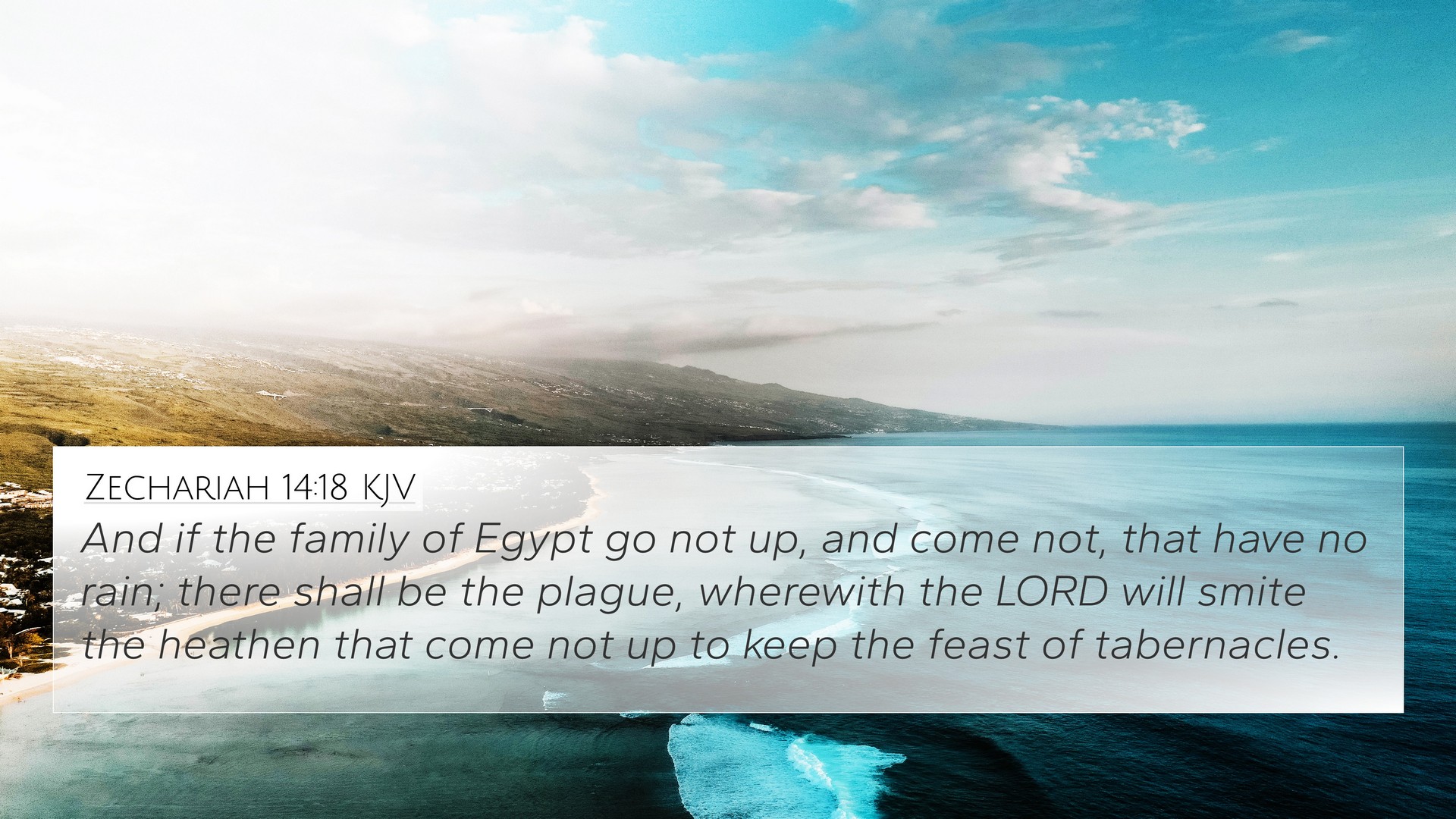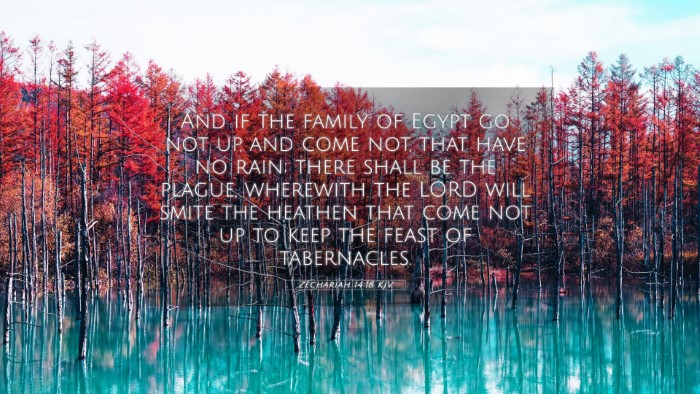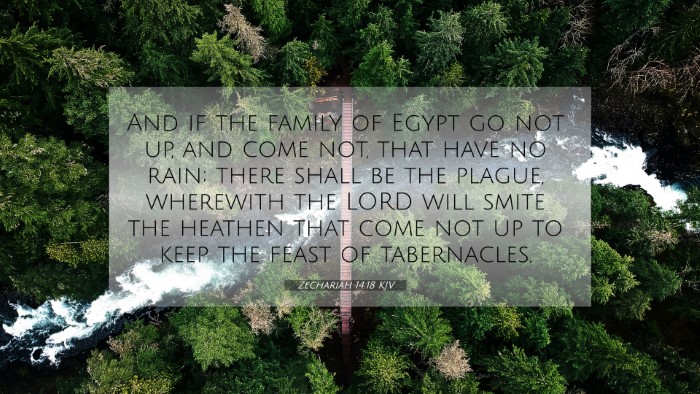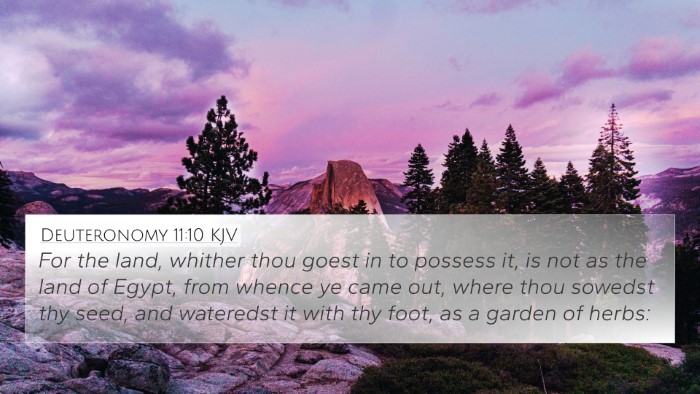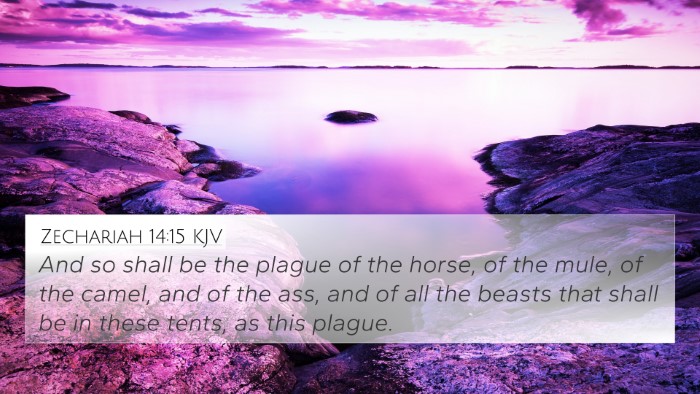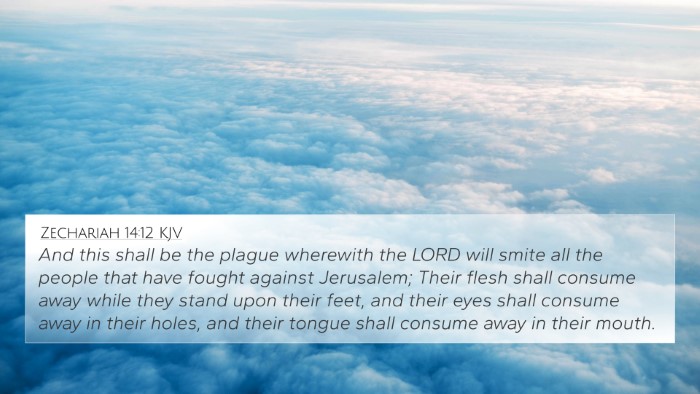Understanding Zechariah 14:18
Bible Verse: "And if the family of Egypt go not up, and come not, that have no rain; there shall be the plague, wherewith the LORD will smite the heathen that come not up to keep the feast of tabernacles."
Overview of Zechariah 14:18
The prophecy of Zechariah speaks of God's judgment and blessing in the context of the feasts that His people must keep. This particular verse emphasizes the importance of obedience to God's commands, particularly the observance of the Feast of Tabernacles, and illustrates the consequences of neglecting this duty.
Insights from Public Domain Commentaries
- Matthew Henry:
Henry highlights the significance of the Feast of Tabernacles as a time of thanking God for His harvest and protection. The verse serves as a reminder of the blessings and necessary attendance to holy observances. The absence of rain signifies God's displeasure, implying that neglecting worship leads to spiritual drought and consequences.
- Albert Barnes:
Barnes focuses on the consequences that Egypt and other nations would face if they fail to participate in worship. He posits that divine judgment will be swift for those who disregard God's festivals. This shows a pattern of interdependence between nations and their religious duties, underscoring that all creation is held accountable to God.
- Adam Clarke:
Clarke provides an analytical perspective on the verse, arguing that it not only applies to Egypt but serves as a metaphor for any nation or people who refuse to honor God's feasts. He hints at a broader implication — that disobedience leads to strife, and divine providence ensures that blessings are withheld from those who stand against God's decree.
Thematic Biblical Connections
- Importance of Worship:
This verse highlights the theme of worship in the Bible and how vital it is to adhere to God's prescribed times for celebration and thanksgiving.
- Divine Judgment:
The potential for divine judgment illustrates God’s sovereignty and willingness to enact order among the nations.
- Consequences of Disobedience:
Failure to observe the feast results in tangible consequences, which serves as a warning throughout scripture about the long-term effects of turning away from God.
Related Bible Cross References
- Leviticus 23:34-43: Outlines the Feast of Tabernacles and its significance.
- Zechariah 14:16: Discusses the gathering of nations to worship.
- Isaiah 19:24-25: Mentions God's blessing upon Egypt and Israel.
- Exodus 34:24: Speaks about the importance of appearing before the Lord.
- John 7:2: Refers to the Feast of Tabernacles in the New Testament context.
- Revelation 21:24: Discusses the nations bringing their glory into the New Jerusalem, highlighting the eternal purpose of worship.
- Psalms 132:6-7: Emphasizes the need to seek God's presence and rest among His people.
Conclusion
Zechariah 14:18 encapsulates the critical reality that God desires worship from all nations and will hold accountable those who neglect His commandments. By understanding this verse alongside its related scriptures, we appreciate the necessity of worship and the repercussions of ignoring God’s appointed times. It's a compelling reminder of both His justice and mercy, calling all creation to unity under divine celebration.
SEO Considerations
For those seeking a deeper understanding of Bible verse meanings and connections, tools such as Bible concordances and cross-reference guides can significantly enhance study efforts. Identifying connections between Old and New Testament themes allows for a comprehensive grasp of God's narrative throughout scripture. This thorough approach not only assists in understanding individual verses like Zechariah 14:18 but also enriches broader theological studies through comparative Bible verse analysis.
